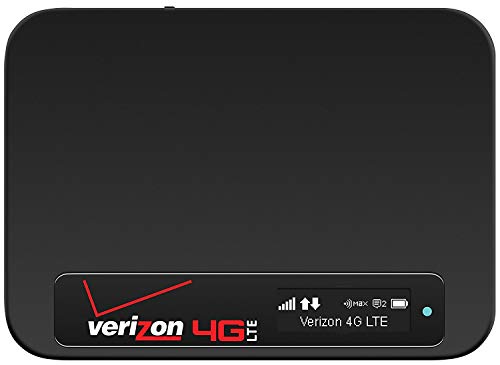Like GearBrain on Facebook
October 26 2016
Last Updated: October 26, 2016
The next time the open road beckons, bring the Web with you. A personal hotspot can turn any car into an Internet machine on wheels.
If you want to take high-speed Internet with you on road trips, it might seem that you have limited choices. You could get one of the few vehicles, like Chevrolet's 19 cars and light trucks, already installed with 4G mobile data communications. But what if you're not in the market for a new car?
Surprisingly, many options exist for staying connected wherever the road takes you. You can retrofit nearly any vehicle with a personal hotspot that can grab 4G LTE data out of thin air. I'll explain exactly how to do everything, from selecting and paying for the gear to securing and then road-testing your hotspot.
Using a personal hotspot will not upgrade your car to that of a 4G vehicle with a built-in Wi-Fi wireless router, but will be the most mobile embodiment of the Internet of Things trend. The kids will be able to watch movies and play games from the back seat while fellow passengers can search for lunch spots or do some work along the way.
Hotspots tap into mobile data networks in metropolitan and suburban areas and U.S. highways, studded with cell towers along most of the major routes. Connections should be fine. When you get off the beaten path, you may run the risk of being disconnected. Because a hotspot draws its data from a mobile data network, not a cable or fiber optic connection, coverage can be spotty — worth bearing in mind.
Bring The Web With You
Regardless of which hotspot you choose, your first choice will be whether to set up a regular monthly contract or use a pay-as-you-go plan. For the Verizon Ellipsis Jetpack, for example, available from Verizon, you'll pay $1 with a two-year contract, then $30 a month for 4GB or $80 a month for 14GB. If you're already a Verizon customer, you should be able to just add another line, which costs less. (Read our Ellipsis Jetpack review here.)

On the other hand, a prepaid account might make more sense for occasional road trips because you add data as you need it, although for most networks the data will expire after 30-days.) In this way, the Jetpack would cost $50 without a contract, and the data is $15 (250MB per week), $60 (3GB per month) or $90 (10GB per month).
At the high-end, that's on a par with General Motor's pricing for cars with a built-on hotspot, where data charges on AT&T's network run from $5 (for 200MB a month) to $50 (for 5GB a month).
Ultimately, the choice on which hotspot you'll use will likely depend on what kind of data you think you'll need while in your car — and if you have an existing mobile contract that you can add to easily.
But with the options today, and the ease of installing one on your own, a connected car is available to everyone — not just those with deep enough pockets to buy the latest model off the line.
From Your Site Articles
- 5 mobile hotspots to get you online while driving in the car ›
- Best road trip gadgets: Don't leave home without this car-friendly tech ›
- 28 self driving car terms you really need to know about ›
- 7 top connected car gadgets to smarten up your summer road trip ›
- How to turn your car into a mobile 5G hotspot: Three options to consider ›
- 7 Best Mobile Hotspots For Cars - Gearbrain ›
- Ellipsis Jetpack Review: Reliable Wi-Fi for Road Warriors - Gearbrain ›
Related Articles Around the Web
Like GearBrain on Facebook
October 26 2016
The Conversation (0)
GearBrain Compatibility Find Engine
A pioneering recommendation platform where you can research,
discover, buy, and learn how to connect and optimize smart devices.
Join our community! Ask and answer questions about smart devices and save yours in My Gear.

Top Stories
Contact Us
- info@gearbrain.com
- 646-376-7760
- 215 West 40th Street, 6th Floor
- New York, NY 10018

